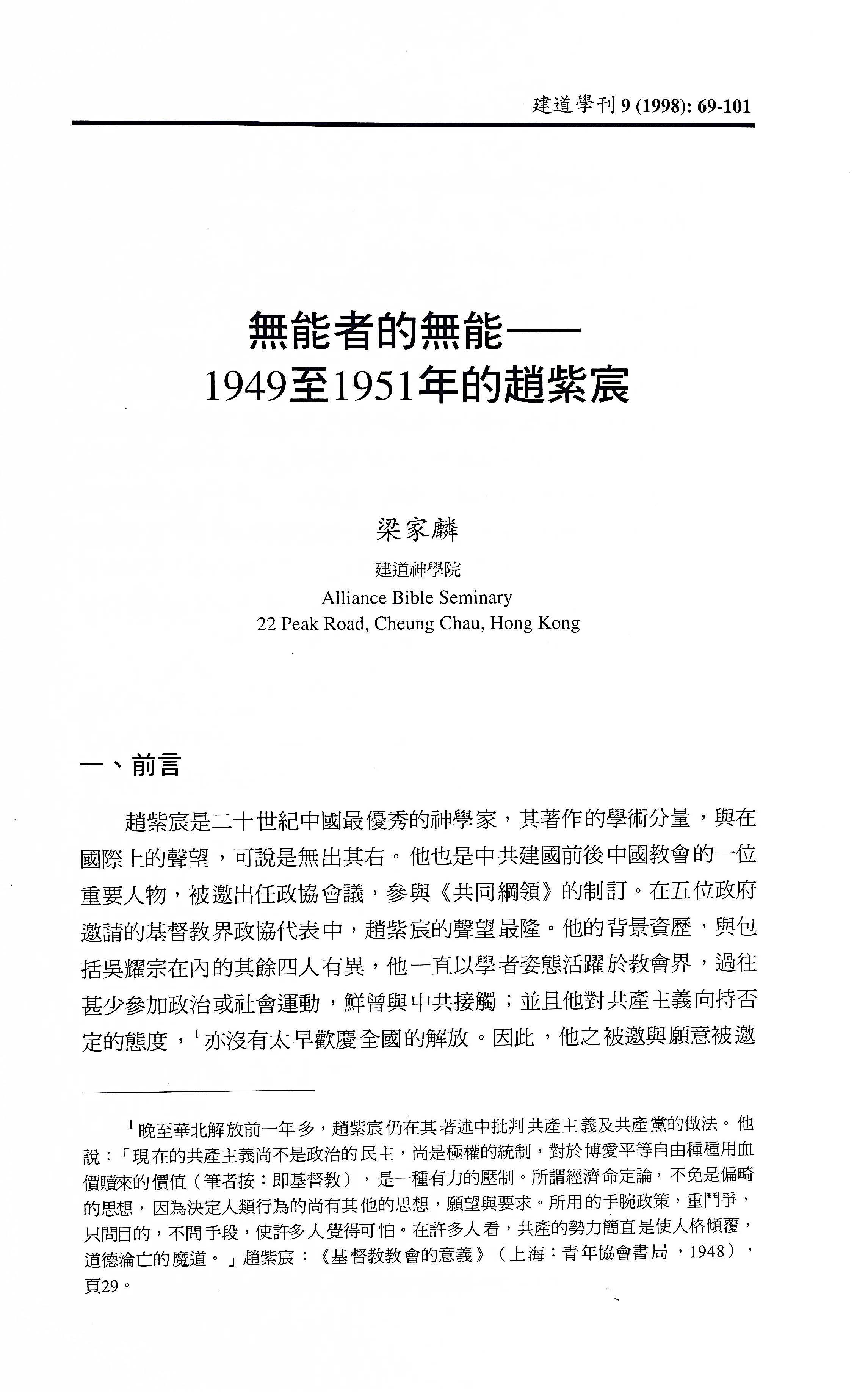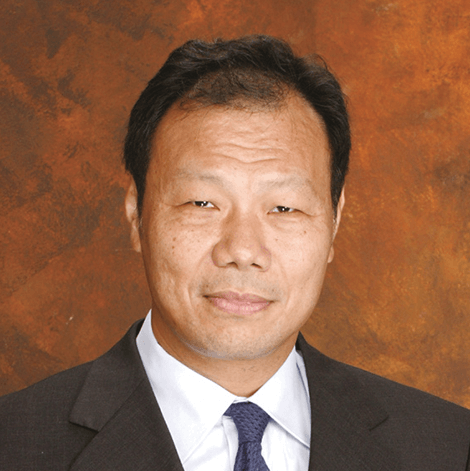無能者的無能──1949至1951年的趙紫宸 / 梁家麟
撮要
本文旨在檢視趙紫宸在1949至1951年間,就是從華北解放到他被三自會公 開批判的前夕,他個人的生平與思想變化的歷程:他如何從對新政權的猜疑與不信,到有限度地與政府及其欽點以吳耀宗為首的「教會改造派」合作,再到為「教會改造派」批判;他如何從積極推動教會作自保式的改革,提倡還原主義,到最後以受苦彌賽亞作為他及其他信徒的勉勵。作者認為,趙紫宸在遭遇政治批判以前,並未對共產主義產生過憧憬,亦未曾作過任何調和基督教與共產主義理論的努力,卻只是積極地鼓吹教會自行(而非在政權指導下)進行內部改革更新,尋求在新政權下的生存空間。他的這個獨立於政府擬定的政治任務以外的目標,在強大的政治壓力下,不惟無法實現,其至令他無法見容於新政權,故早在1952年他便已為「教會改造派」拉下馬。
ABSTRACT
The paper examines the changes of T.C. Chao’s thought and his stance on the Communist government during 1949-1951. On his political stance: in the early of 1949,Chao still counted the new communist government as dubious and cannot be trusted. Then, he became willing to cooperate with the government and its agents within the church (i.e., the “Church Reformers” led by Y.T. Wu) in a limited extent, however, he in turn was fiercely prosecuted by the “Church Reformers” at last. On his thought of reforming Chinese churches: at first, he actively advocated the Chinese churches to perform a reform for survival under Communist sovereign, then he promoted restorationism, and finally, stressing on the suffering Messiah as a comfort and encouragement for him and his fellow Christians under persecution.
The writer argues that Chao never has novelty on Communism, and never put forward any attempt to mediate the contradictions between the Christianity and Communism. His proposal on church reform and revitalization was only for the sake of the survival of Chinese churches under the Communist China. Thus, as his proposal was so deviant to the political tasks of the Communist government’s church reform program, this proposal was deem to be failed. Eventually, Chao himself was purged from political and ecclesiastical positions in 1952.
原載於《建道學刊》9期(1998年1月),頁69-101。
作者簡介
梁家麟
傑出教授
榮譽院長
Latest Articles
新手牧者研究計劃(三):新手牧者的身心靈狀態 / 盧慧儀
2025 年 11 月 19 日
個體與關係:滕近輝思想中「深化」的靈性觀 / 倪步曉
2025 年 11 月 18 日
香港九龍塘基督教中華宣道會之起源和發展史/陳智衡
2025 年 10 月 20 日
Highlights
[電子書]困境與抉擇:「建道研究中心30週年誌慶」跨學科研討會論文集/廖炳堂、倪步曉主編
2025 年 1 月 2 日
從梧州到長洲:建道神學院125年的挑戰與恩典 / 陳智衡
2023 年 10 月 1 日
微小教會的見證/高銘謙
2023 年 6 月 1 日








